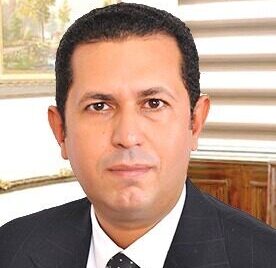Amidst the global changes and the economic fallout from the Russian-Ukrainian war, the 15th BRICS Summit was held in Johannesburg, South Africa on 22-24 August with the aim of reinforcing the group, which includes Brazil, Russia, India, China and South Africa as a counterweight to Western dominance.
Many countries have grown weary of US dominance of the global economy for decades. This summit, ‘BRICS and Africa’, is likely to raise hope for the end of the unipolar, international order and undermine the dominance of the US dollar in international trade.
BRICS represents nearly 40 per cent of the world’s population and a quarter of global gross domestic product, holding the possibility of a more equitable and just international order that benefits the world.
There is no doubt that global upheavals caused by the war in Ukraine and the growing rivalry among world powers have sparked a desire among BRICS countries to unify and consolidate their position, as they have sometimes suffered internal divisions and lacked a coherent vision.
South African President Cyril Ramaphosa said in a speech ahead of the summit: “The BRICS grouping represents diverse countries with diverse economies and political systems, who share a common desire to create a more inclusive political and economic order in an increasingly polarised world.”
“The grouping’s pledge to become a champion of the developing world and offer an alternative to a world order dominated by wealthy Western nations is already finding resonance,” Ramaphosa added.
Amidst a growing desire among other countries to reform global governance dominated by the US, over 40 countries including Argentine, Egypt, Iran, KSA, UAE, Yemen, Indonesia, Morocco, and Ethiopia, have expressed interest in joining BRICS.
Expansion of BRICS has long been a goal of China, which hopes that broader membership will lend clout to the grouping and change the current global architecture.
The first BRIC Summit was held in Yekaterinburg, Russia in June 2009 with the announcement of the formation of a bipolar global system.
BRICS was formerly known as BRIC when its membership included Brazil, Russia, India and China, but later its name was modified to BRICS when South Africa joined the group in 2010.
BRICS plans to attain a set of economic and political goals across consolidating security, peace and co-operation across the world to create a bipolar economic global system.
It is expected that the countries of BRICS may become among the five most dominant economies by 2050, according to Goldman Sachs Banking group.
Mohamed Fahmy is the editor-in-chief of The Egyptian Gazette and Egyptian Mail newspapers






Discussion about this post